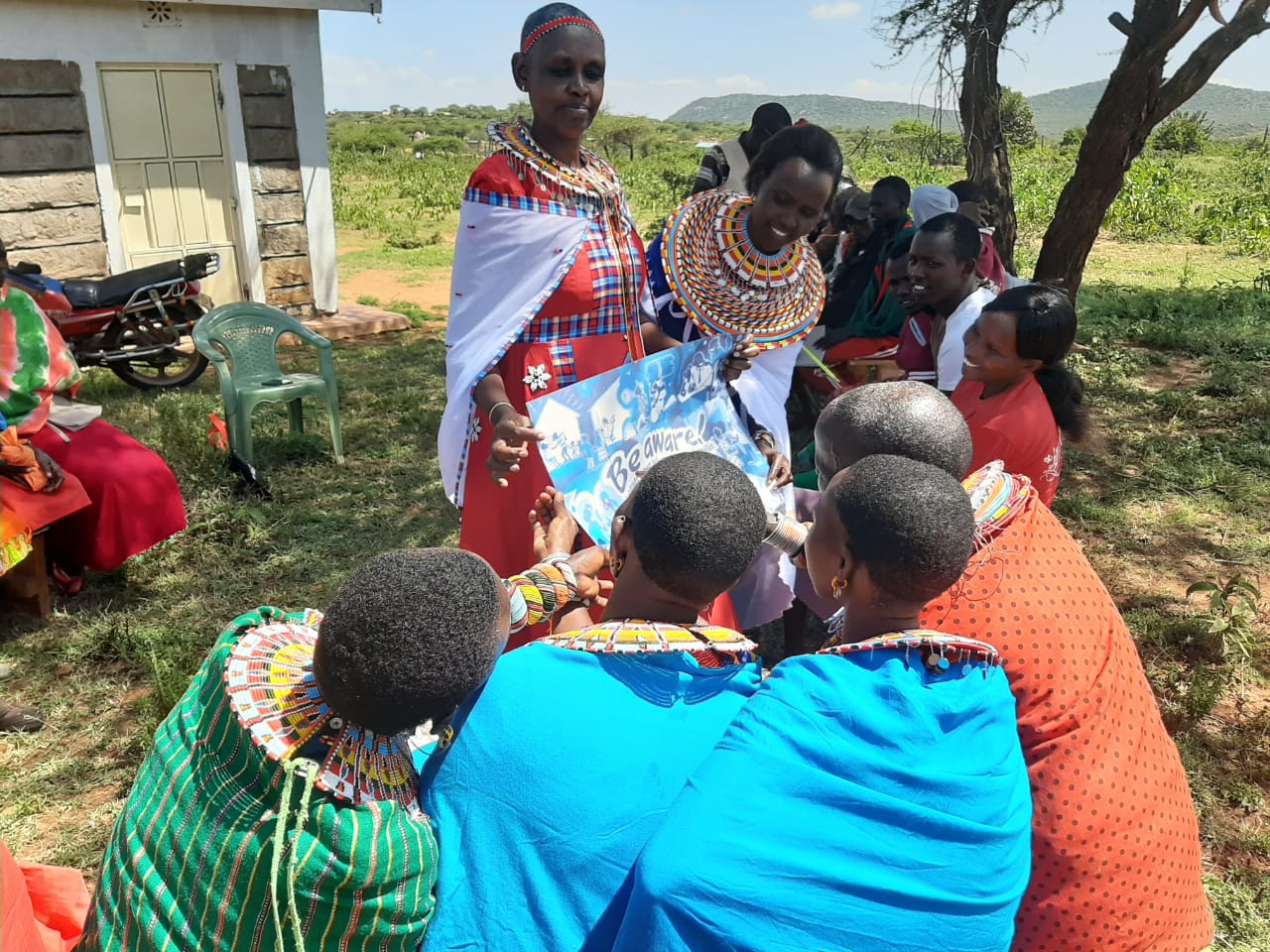
We meet Cecilia Ekeno at a mentorship session she is having with young girls at the Anti-Poaching Unit Dispensary grounds in Burat Ward, Isiolo County. Here, she is having a heart-to-heart talk with the girls about fundamental human rights, including the right to live free from violence and child marriages.
“When schools close, we bring girls together in a safe space and talk to them about their sexual and reproductive health owing to the many cases of teen pregnancy that we have been experiencing in this area,” says Cecilia.
18 year old *Lelerewa present at the mentorship sessions is among the girls whose life changed for the better courtesy of the Inua Mama group.
When a man well known to her defiled her leaving her pregnant; it is the Inua Mama group that came to her aid, supporting her through psychosocial sessions as she journeyed through the legal corridors. Though it took months before the perpetrator was apprehended, the women ensured that justice was served and perpetrator locked behind bars.
“After I gave birth to my son, the women paid part of my school fees and bought school essentials,” says the delighted Lelerewa who is preparing sit for her Kenya Certificate of Secondary Education later this year.
“Our major challenge however is that the community does not see the need to have girls go to school,” Cecilia says, explaining that such level of discrimination kills the dreams of many young girls.
She notes that the low value attached to girls schooling is tantamount to killing their future and the cycle of acute poverty prevails.
In Isiolo, the deeply embedded cultural practices such as FGM, beading (a tradition in which girls are booked or engaged to older for sexual purposes) and child marriages exposes girls to early sexual debut, health risks and domestic violence.
Cecilia and 18 other members of the Inua Mama group are however working to create safe spaces and communities for girls to go to school and enjoy their full purpose.
Together with her group, Cecilia is part of the vocal women activists who have been trained by CREAW through the Wajibika Project and are now leading conversations in the community to shift away the norms that endangers the life of women and girls in the community.
Apart from the off school conversations with the girls, they have also made it part of their mandate to engage parents and local administration officials to make them part of the solution to the change needed for many girls in the area.
“We realized that we must start the conversations at home then we extend it to the larger community. Our little steps are beginning to cause ripples,” says Cecilia.
Looking at the bigger picture, the women are concerned that to date the county does not have safe homes to shelter girls who face violence in the community. They say, a gender policy for the county will go along way in streamlining a roadmap that would address the systemic issues that promotes violence against women and girls as well as avail resources to bridge the inequality gap in the County.
